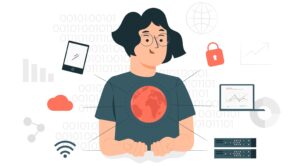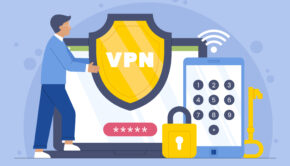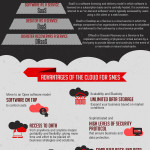Does VPN protect your Device from Malware?
Using a Virtual Private Network (VPN) is the number one way to stay safe online. A VPN secures your connections and data and allows you to roam the internet more privately. Essentially, you’re routing your connection through the private server that could be located anywhere in the world. Not only does this mask your IP address, but it allows you to access region-restricted sites.
The number one way VPNs keep you safe is when using public WiFi, which is not secure. A VPN will shield your browsing activity from this and secure your connection.

What is Malware?
Malware is short for malicious software – which is somewhat self-explanatory. Malware is essentially computer programs that are designed to damage and infiltrate other computers without their knowing consent. Malware is an umbrella term for viruses, trojans, spyware and worms.
Does a VPN protect your Device from Malware?
A VPN may protect you from many things, but it doesn’t fundamentally defend against malware. In short, a VPN is not a substitute for anti-virus programs, it should be used alongside them. It may be worth looking into the technical details about Nordvpn and other major VPNs for yourself, because it’s a little more nuanced than that (VPN’s do help a bit).
VPNs have strong encryption and will keep your connection safe and surveillance-free. It does this by encrypting traffic that’s passed between client and VPN servers. Decryption takes place by the VPN client once the requested web content reaches your device. It sounds like it may protect you from malware, but it’s not configured to deal with such software issues like malicious programs. However, what some VPNs can do, is protect you against phishing and malware websites, because web browsing is what they have a say in. They can build up a list of dangerous sites by using anonymised user data (or other means), and prevent you from loading up their pages.
The thing is, malware can run riot even when you’re offline. If it’s already on your device, or perhaps transferred via some hardware like a USB, you may suffer from the damage malware programs cause by being completely offline. And of course, if you’re offline, VPNs are redundant and not being used.
How to protect yourself from Malware
The best way to protect yourself from malware is not from any tools or techniques – it’s to use common sense and to be aware of phishing messages. This means not opening attachments or downloading programmes from unknown sources. It’s important to educate yourself on what these red flags are, and what to look out for. Even if you’re convinced that an email looks like it’s from your bank asking for action on your account, never click through email links or use their internal forms. Simply go to the website yourself through Google.
Besides that, you can protect yourself with anti-malware software, though this isn’t strictly necessary on Windows 10 as there’s already a competent virus-detection system in place. Browser plugins such as allowing click-to-play and script blockers are also effective methods at keeping unknown threats at arms reach, as well as VPN’s ability to prevent loading dangerous web pages.
Likewise with mobile phones and tablets, you’re not necessarily in need of specific malware defence applications if your setting is “off” on “allow downloads and installation from unknown sources”. That way, only official PlayStore apps will have enough access to download programs.
















